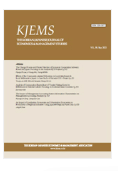Purpose: Recently, interest in workation has been increasing in Korea. Many local governments are inducing a large influx of tourists through investment and operation in the development of the workation center. Accordingly, hardware-oriented investments called workation centers are mainly developed and operated by urban local governments. Accordingly, this study was conducted to present implications for the ultimate development direction of workation linked to the region based on the understanding of the development background and application of Japan workation, which is the leading application of workation. Results: The characteristics of the Japanese work system are as follows. The Japanese work system has long been discussed in policy by the government, telework and work were applied as a way to expand the related population as a way to prevent local extinction and promote local creation, and work is still applied as an alternative for local revitalization, mainly in the provinces. In contrast, Korea’s intention to activate work, a new way of working that reflects the characteristics of the new MZ generation, was emphasized, and many local governments are developing work centers and operating them mainly as corporate workers through contracts with companies. Furthermore, it is believed that it is being operated as a strategy to attract another tourist. Recently, in Japan, there are doubts about whether work is a concept in which the management and operation of workers of another company and autonomous time are expanded without separation of work and leisure. Implications: In this study, as a direction of application of work, it is suggested that the application of Japanese-type work, which can be operated in connection with companies with areas that are difficult to develop in rural areas such as agricultural, mountain and fishing villages, should be applied in Korea. Through communication, it will be possible to become an alternative for local and urban linkage through understanding of the region and expanding opportunities for mutual exchange. In addition, it is believed that the MZ generation should be able to provide opportunities for them to understand the provinces through work.
1. 서론
2. 일본 워케이션에 관한 선행연구
3. 일본 워케이션 정책
4. 워케이션 운용 사례
5. 결론 및 시사점
References
(0)
(0)
